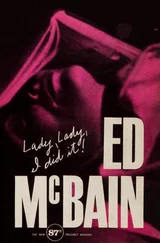“Well, well,” he said, “it seems I’ll have a college-girl granddaughter in the fall.” The word “granddaughter” reverberated, underscoring her father’s earlier lapse. “You look beautiful, Liss,” he said, further compounding her father’s felony. Couldn’t her own father have called her “daughter”? Couldn’t he have told her how beautiful she looked, the way Granddaddy had just done? No, just the quick embrace — and “Congratulations.” Thank you, sir, she’d felt like answering, I’ll try to live up to the expectations of the company.
Grandmother Harding, all blue hair and blue eyes, wearing a pastel blue suit — she always wore blue, never any other color — crowded her husband aside with a “Stop monopolizing her, Peter,” and hugged Lissie to her ample bosom, the Harding legacy except for Lissie herself, and said, “We bought you something lovely, Liss,” good old Grandma, never able to express affection except in terms of gifts, sometimes “accidentally” leaving the price tags on them so you could better appreciate the magnitude of her love. Standing there in her grandmother’s embrace, looking over her shoulder to where her mother was still smiling that false, forced smile, Lissie was astonished to realize how closely the three of them resembled each other, three generations in the bright June sunshine, grandmother, mother and daughter, the youngest of whom was about to begin a hopefully safe voyage across life’s perilous waters, with a godspeed and a fare thee well.
She felt suddenly frightened in her grandmother’s arms; she did not want to grow up to be her mother, did not want to further age into this blue-haired woman who now whispered in her ear, “A beautiful Longines wrist watch,” yet the evidence was plain to see and understand, grandmother unto mother unto daughter, the trinity realized. Unless she was very careful, she herself would one day be standing in the sunshine at the age of seventy-five, all dressed in blue perhaps, whispering in her own granddaughter’s ear about the lovely graduation gift she’d bought her. She did not want that to happen. She wanted instead...
She suddenly wondered what she wanted.
Standing there on the brink of life’s greatest adventure, she had no answer.
There had been family vacations galore when Lissie was growing up: weekend skiing trips to Bromley, Stratton, Sugarbush and Stowe, and once even to Mont Tremblant in Canada, where she’d been terrified by the trails and frozen stiff besides; cultural excursions to Washington, D.C., New Orleans, Charlestown and Annapolis; strictly fun stuff like the full week they’d spent in Los Angeles, most of it at Disneyland. On her school breaks, her parents usually took her to someplace in the Caribbean, Jamaica one time (where the natives were surly and one man spit at her), Puerto Rico another time, and the Bahamas, and Caneel Bay when she was eight (which she didn’t like because there were no kids there) and Haiti and St.Vincent, which was close to South America, and, well, all of them — she was willing to bet she’d been to more Caribbean islands than any kid her age.
In the summers, they usually took a house at the beach someplace. One summer it was Fire Island — well, wait, that was two summers. Once in Saltair and the second time in the Pines, right, two years. And one summer they took a house on Martha’s Vineyard, and another time on Shelter Island and once on Nantucket, always a beach house someplace. The most glorious summer of all was when Lissie was thirteen and the family went to Paris and the Dordogne, where she fell in love for the first time in her life with a French busboy in the town of Les Eyzies, a romance unfortunately short-lived in that they were moving on to Périgueux in the morning. So there’d been plenty of family vacations, and no cause to complain of neglect or abandonment. Even her parents’ vacations alone together (“To recharge our batteries,” as her father put it) were infrequent and usually of short duration — a week, ten days, two weeks at the most — and so, really, there’d never been any reason to raise a fuss.
But this summer, perhaps because she’d just graduated, perhaps because she was looking forward with some trepidation to beginning college in the fall, she resented enormously the trip her parents planned to take without her, especially since she was expected to spend the time they were gone with her grandparents on the Cape. Her father’s shopworn remark about recharging batteries consoled her not in the least. She found her mother’s familiar “But we always come back, darling” less than reassuring. They were going to Italy for two weeks, and she was going to the goddamn Cape. The imbalance, the injustice of such an arrangement infuriated her. She spent an hour on the phone complaining to Rusty Klein about it, and another hour in a long-distance conversation with Jenny in New York. Jenny offered the greater solace. “They wouldn’t let you go to Colorado,” she said, “but they’re ready to traipse God knows how many miles to Italy!”
The “God knows how many miles” turned out to be four thousand, as her parents informed her, but they assured her there was very good telephone communication from Italy, even from the island of Sardinia, where they planned to be spending most of their time, and they promised they would call her as often as they had when she was at school. Besides, they would only be gone for two weeks, after which they would spend the rest of the summer together doing whatever Lissie wanted to do. Lissie wanted to go to Italy, that’s what Lissie wanted to do. By the last week in June, which was when they broke the news to her — sneaky, oh, how sneaky — she was bored silly with the town of Rutledge, Connecticut, and ready to climb the walls. There were only so many trout she could pull from the river behind the house, only so many bicycle rides she could take on the town’s tree-shaded lanes, only so many picnics she could go on with kids as bored as she herself was.
Even so, the prospect of spending July and August in Rutledge was positively brilliant when compared to spending two weeks with Grandmother and Grandfather Harding in the creaky old house they rented on the Cape each summer. Her parents told her, nonetheless, that their plans had been made a long time ago (she doubted this; if it was true, why had they held off telling her till almost the end of June, when they were scheduled to leave on July 12?) and they couldn’t at this late date hope to get another room for Lissie, especially at the Cala di Volpe, which was the hotel the Aga Khan had built with his triumvirate or his consortium or whatever the hell they told her it was called, a hotel impossible to get into at the last minute, and even difficult to book if you made your plans far in advance, as they had done (and which she still doubted), so that was that.
On the eleventh day of July, while her parents were still packing for their trip abroad the next day, Lissie was shipped off to the Cape. The man who drove her up ran the town’s so-called limousine service which, translated from the English, meant a fleet of two, count ’em, two Cadillacs. He was not a man noted for generosity of speech. Lissie spent four hours in utter silence with him, he hunched over the wheel, she sprawled on the back seat of his best car (the blue one), watching the landscape roll by, and dreaming of Tuscany, where her parents planned to spend a few days before taking the Civitavecchia ferry to Sardinia. It happened to be raining, which did nothing to alleviate her dark mood.
The house her grandparents had been renting for the past seven summers, ever since Lissie was ten, was a gray-shingled structure perched on the edge of the beach, gabled and turreted, with a genuine widow’s walk on the uppermost story and a reputed ghost in the basement. Lissie would have welcomed the ghost. She kept looking for the goddamn ghost. It rained for the first four days of her stay, the weather denying her even a tentative dip in the frigid ocean, which she wouldn’t have relished much anyway. Granddaddy kept asking if she’d seen the poltergeist yet. “Seen the poltergeist yet, Liss?” Grandmother kept saying there was a difference between a poltergeist and a ghost, but she never seemed able to explain the difference satisfactorily. Poltergeist or ghost, Grandmother never went down to the basement alone.
Читать дальше












